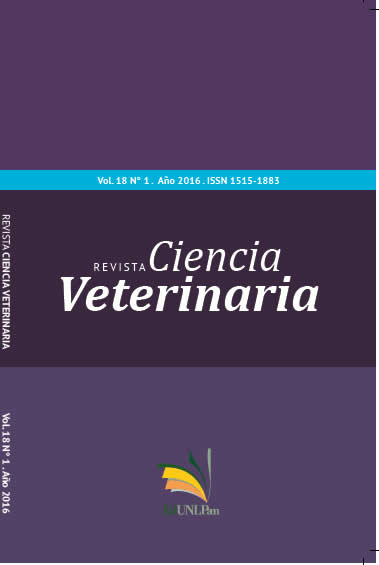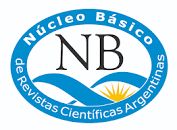Gastroprotective effect of Equisetum giganteun (Cola de caballo) and Cortaderia selloana (Cortadera) in rats
Keywords:
vegetable extracts, farmacognosy, gastroprotective, cytoprotectiveAbstract
The gastroprotective effect of two plants of La Pampa province Equisetum giganteun L. and Cortaderiaselloana (Schult&Schult. f.) were utilised in an ulcer incited model by hypothermia and immobilisation in rats. Aerial parts of the plants were dried in a heater by air flow at 60 °C. The vegetable drug was extracted by ethanol:water solvent (1:1, v/v). The Mus musculus rats were allotted in groups of five animals each. The observer group (OG) received an oral dose of 0,5 ml of excipient (Ex) composed by carboxymethylcellulose and tween 80 (1:1, v/v). The control group (CG) received 0,05 mg/kg of atropine subcutaneously and 0,5 ml of Ex orally, by contrast, the treated groups (GTEg and GTCs) received an oral dose of 1 gram hydro-alcoholic extract. The results, of both control and treatments groups, were compared and analysed with the results of the observed group by the student t-test. The atropine administered to the CG prevented the ulcer formation in all animals group. The two evaluated plants showed significant gastroprotective effect (p≤0,01) in relation to the CG. It concluded that the extract of the evaluated plants prevented the ulcer formation induced by stress in rats.
Downloads
Downloads
Published
How to Cite
Issue
Section
License
Al momento de enviar sus contribuciones, los colaboradores deberán declarar , de manera fehaciente, que poseen el permiso del archivo o repositorio donde se obtuvieron los documentos que se anexan al trabajo, cualquiera sea su formato (manuscritos inéditos, imágenes, archivos audiovisuales, etc.), permiso que los autoriza a publicarlos y reproducirlos, liberando a la revista y sus editores de toda responsabilidad o reclamo de terceros , los autores deben adherir a la licencia Creative Commons denominada “Atribución - No Comercial CC BY-NC-SA”, mediante la cual el autor permite copiar, reproducir, distribuir, comunicar públicamente la obra y generar obras derivadas, siempre y cuando se cite y reconozca al autor original. No se permite, sin embargo, utilizar la obra con fines comerciales.



4.png)


7.png)



